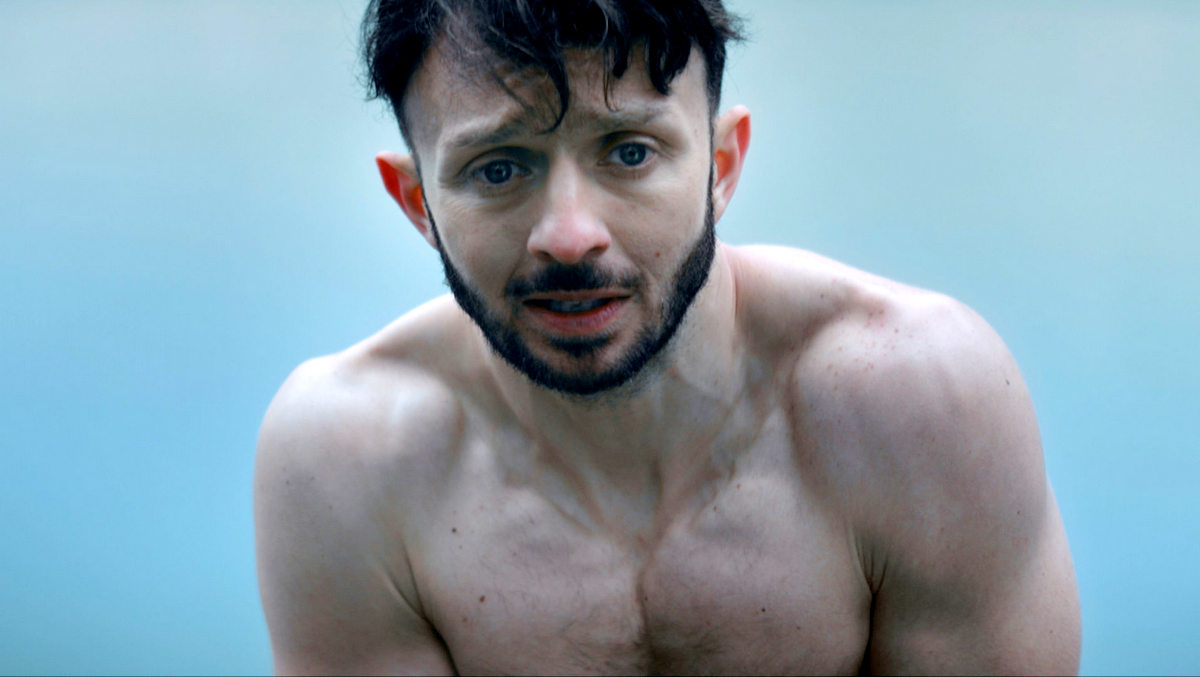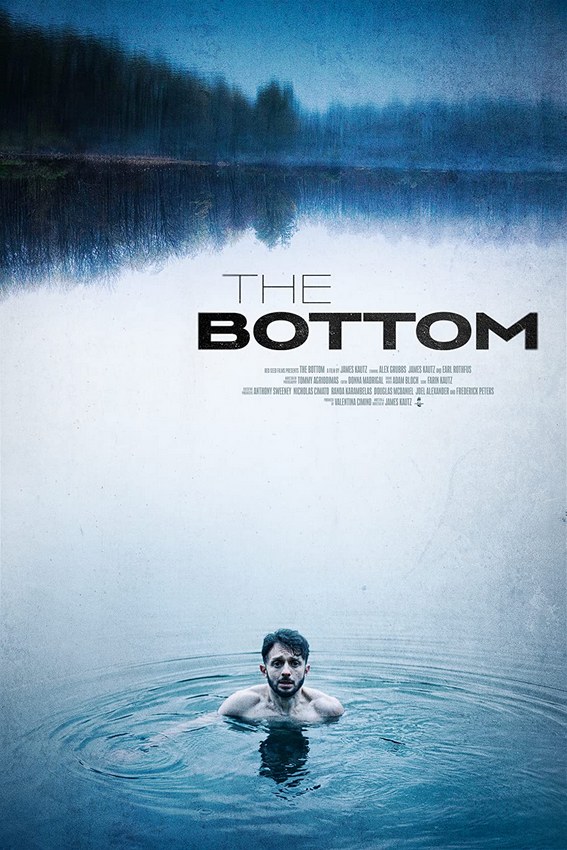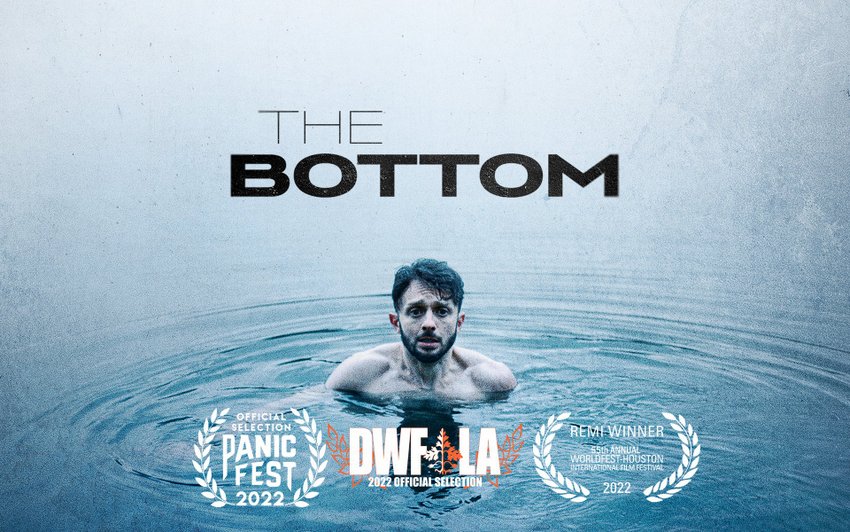
Morgan Ruaidhrí O’Sullivan is a LA Based Actor, Director, and Writer whose work is heavily intertwined with the mission to spiritually, emotionally and mentally heal our culture. After a decade of experience working as an actor, director and producing artist in NYCs Off-Broadway community, I became one of two founders of Red Seed Films, a production company dedicated to telling raw, vulnerable stories that center topics like gender identity, trauma and recovery through radical empathy.
indieactivity: How did you get into directing? How would you describe your style?
Morgan Ruaidhrí O’Sullivan (MRO): As a gender-non-conforming person, there aren’t always as many opportunities for me to partake in the stories others tell, so directing has been a really incredible creative outlet that doesn’t depend on my gender presentation or identity. I’ve also been an actor for a long time, and the way I act is actually really similar to the way I direct.
My work as an actor is deeply focused on movement and energetic response / creation in space, which translates really well to directing I think; I’m incredibly inspired by directors like Anne Bogart who talk about directing in terms of creating space in rehearsal where it’s safe to take risks and be vulnerable. Mostly, I just want to create a room where actors feel like they can be the best versions of themselves and they can explore.
Watch the trailer for The Bottom co-directed by Morgan Ruaidhri O’Sullivan
Do you hire a casting director, or choose the cast yourself? What criteria goes into your casting?
Morgan Ruaidhrí O’Sullivan (MRO): I’ve been lucky so far in my experience as a director in that I’ve been able largely to work with people I know and love on projects that don’t require a casting director – although I’m very excited to explore that option in the future. For me, my first priority is whether or not this person brings a grounded understanding to the character and the text, which is very closely followed by their ability to interact in a space with others.
What went into the casting process for THE BOTTOM?
Morgan Ruaidhrí O’Sullivan (MRO): We knew from the beginning that James Kautz would be playing one of the roles, although he had some hesitation from the beginning about playing Jude, the antagonist. When I started to offer that he should play that role, we wanted to bring someone in who James could feel safe and vulnerable with, as well as match his skill as an actor.
Without giving anything away, tell us a little bit about the script, how did you come up with the idea?
Morgan Ruaidhrí O’Sullivan (MRO): The script for The Bottom was largely born from James’ own experience as a survivor of narcissistic abuse. Although, I certainly had a lot of input as well. At the time we were sort of trapped in this really small, conservative town South of Buffalo, New York (thanks to Covid19) where masculinity is largely connected to things like hunting, violence, power dynamics and a lack of emotional connection; having the time to reflect and heal from relationships that had caused us a lot of pain the past and connecting them to this idea of needing a gun to feel like you can protect yourself, especially from someone who doesn’t understand non-violent communication, was the result. This sort of power struggle between men, specifically.

Who is THE BOTTOM” for? Who do you think would enjoy it the most?
Morgan Ruaidhrí O’Sullivan (MRO): I personally think that this film speaks first to masculine people, especially cis-gender men, who experience emotional abuse and don’t have the space to process it in our culture. There isn’t a lot of room for cis-gender men to process having been victimized or express feelings of pain, hurt, guilt, or fear – especially in relation to other men. I do think the theme of navigating codependent relationships and toxic power dynamics is universal, though, and that ultimately anyone who has had to hold an intervention or decide to exit an abusive relationship that involves gaslighting will probably relate.
How long did it take to shoot the entire film?
MRO: By some miracle, we shot it in one day. Less than that really – probably ten hours in total?
How long was the post-production process?
MRO: I believe we worked on this for about six months, especially in relation to the score. We really wanted to make sure we gave our composer lots of room to be creative and make something special, which he did.
The film had a lot of talent working behind the scenes as DPs, sound designers, composers, etc. Why is diversity important both in front of and behind the camera?
MRO: Representation matters. It’s important to make sure we’re bringing as many different experiences as possible to any project simply because there are more solutions than questions when you have a variety of voices to listen to. When diverse sets are created with intention, there are only more opportunities for growth; I don’t think there’s any argument that those kinds of environments do anything except positively impact art and the audience that experiences it.

What are your goals with The Bottom?
MRO: With The Bottom, we want to take it through the festival circuit and offer it as another color palate that our Company, Red Seed Films, works well with. On a socially conscious level, I personally hope that this film offers anyone who has faced abuse and has found it difficult to articulate the experience a chance to experience something that resonates with them. I hope it makes someone who needs to get angry, get angry, and I hope that it leaves folks questioning what needs to be questioned.
What’s next for you? What are you working on right now?
MRO: We’re currently in post for our third and fourth films, Manifold and Not Us, as well as working on our first feature film, Lovebomb, that’s currently placed in a handful of script competitions.
What would you recommend to a new director at the beginning of his/ her journey? Any special courses, workshops, helpful books they can read?
MRO: A Director Prepares by Anne Bogart. It’s my absolute favorite thing to turn to. Be open to change. Know that you cannot do anything alone. The best thing you can do as a director is build an incredible team and let them be incredible. Get a therapist.
Who is your favorite director? Why?
MRO: Oh boy. Peter Jackson! It’s just a personal nerd thing for me – I just respect the hell out of his ability to world build and create opportunities for actors to be their best selves. His direction on The Lord of the Rings changed my whole life. His attention to detail, his willingness to make a fool out of himself to find gold; I have always loved that he’s just such a goon, and that’s why he’s good at his job. He loves it more than anything. And that’s just so cool to me, I respect him so much.
What advice would you give directors around the world?
MRO: Listen to the people around you, and don’t be afraid to say, “I don’t know.” Leave your ego at the door. And mostly, act with compassion towards yourself and your fellow artists.
Tell us what you think of the interview with Morgan Ruaidhrí O’Sullivan. What do you think of it? What ideas did you get? Do you have any suggestions? Or did it help you? Let’s have your comments below and/or on Facebook, Instagram or Twitter.
Follow Morgan Ruaidhrí O’Sullivan on Social Media
Website
IMDb
Twitter
Instagram
MORE STORIES FOR YOU
Richard Green Documentary, ‘I Know Catherine, The Log Lady’: Premiere in NYC, LA May 9th
Lynchian Doc I Know Catherine, The Log Lady Makes Hollywood Premiere 4/17, Rollout to Follow
In Camera by Naqqash Khlalid Launch on VOD April 29
Naqqash Khlalid’s Directs Nabhan Rizwan. In Camera stars an EE BAFTA Rising Star Award Nominee.
2025 Philip K. Dick Sci-Fi Film Festival Award Winners Announced
Vanessa Ly’s Memories of the Future Awarded Best PKD Feature
Dreaming of You by Jack McCafferty Debuts VOD & DVD for April Release
Freestyle Acquires “Dreaming of You” for April 15th Release
Hello Stranger by Paul Raschid set for London Games Festival & BIFFF
The film Is set for an April 10th Premiere at The Genesis Cinema in London (LGF) and BIFFF
Daydreamers Official Trailer by Timothy Linh Bui: Released by Dark Star Pictures
Daydreamers Vietnamese Vampire Thriller – May 2nd release









